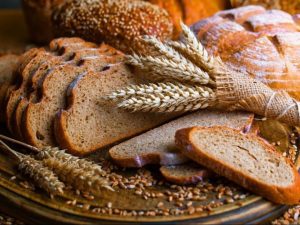
Ukraine since the beginning of the 2019/2020 marketing year (MY, July-June) has reduced production of bread and bakery goods by 12.3%, and in March this year compared to March 2019 by 13.8%, the UkrAgroConsult analytical agency said on its website.
According to the agency, production of flour since the beginning of the current MY has decreased by 3.1%, and in March this year from March of the past year by 8.8%.
UkrAgroConsult noted that in March production of bran also decreased by 8.3%, and feed by 6.1%.
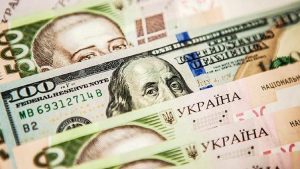
The National Bank of Ukraine (NBU) in April 2020 bought $723.3 million, while sold $44.5 million in the interbank foreign exchange market, while in March it spent $2.2 billion on supporting the hryvnia. According to the NBU, in the period from April 27 to April 30, the regulator bought $115.5 million at a single rate in the interbank market, which is four times more than a week earlier. This week, the central bank was only buying currency.
Most of all, in March the National Bank bought in the interbank market from April 6 to April 10 ($327.7 million), and only that week it sold foreign currency ($44.5 million).
In general, since the beginning of the year, the central bank bought $2.069 billion for reserves and sold $2.793 billion.
This week, the national currency rate in the interbank market strengthened and reached UAH 26.945/$1 on Wednesday, after which it slightly weakened on Thursday to UAH 26.955/$1. Starting from April 2, the hryvnia exchange rate did not fall below the level of UAH 27.5/$1, stabilizing after a rapid fall in March.
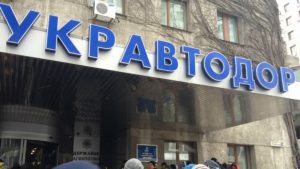
The State Automobile Roads Agency of Ukraine (Ukravtodor) has started issuing bonds totaling UAH 5.782 billion, the agency has said on the website of the National Securities and Stock Market Commission.
The agency said in the statement that the issue of Ukravtodor bonds for the indicated amount was included in the public register of securities issues on April 28, 2020.
The Cabinet of Ministers of Ukraine approved the conditions for borrowing and providing government guarantees by the State Automobile Roads Agency of Ukraine (Ukravtodor) for a total amount of about UAH 19.27 billion at the meeting on April 1.
According to the decision of the Cabinet of Ministers, Ukravtodor will issue five series of government-secured bonds without a public offering.
The interest rate on bonds is set at 12.5% per annum and will be paid quarterly. The maturity of the bonds is from one to five years, depending on the series.
Bonds of Ukravtodor are redeemable by state-owned Ukreximbank.
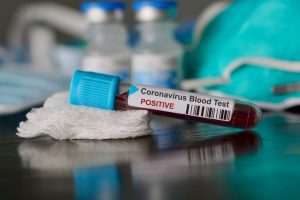
Prime Minister of Ukraine Denys Shmyhal declares that Ukraine experiences an optimistic forecast of the development of the epidemic in the country.
“We are heading in accordance with an optimistic forecast for the development of the epidemic in Ukraine,” he said at an extraordinary government meeting on Monday.
The premier also noted that Ukraine is approaching a “plateau” when there are no significant increases in the disease rate.
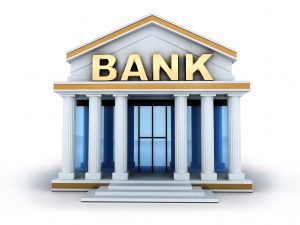
The single counterparty exposure limit (H7, no more than 25%) was violated by Ukreximbank (36.1%), Industrialbank (58.16%), Prominvestbank (62.81%), and Misto Bank (42.73%) as of April 1, 2020, the National Bank of Ukraine (NBU) has reported.
The related party transactions exposure limit (H9, no more than 25%) was violated by FUIB (30.12%), Megabank (63.65%), Bank for Investments and Savings (78.05%), First Investment Bank (73.38%), and Unex Bank (31.50%).
The limit on bank total long open FX position (L13-1, no more than 10%) was violated by Prominvestbank (112.87%), Oschadbank (125.49%), PrivatBank (167.8%) and Industrialbank (19.17%).
The limit on bank total short open FX position (L13-2, no more than 10%) was violated by Prominvestbank (104.8%).
The liquidity coverage ratio (LCR) for all currencies (at least 100%) was violated by Misto bank (78.83%).
As for the adequacy ratio for core capital (H3, at least 7%), the NBU said that considering the requirements to raising the capital conservation buffer, the common equity adequacy ratio (N3) as of the beginning of 2020 should account for at least 7.625%.

CEO of lifecell mobile operator Ismet Yazici would like to see Azerbaijan Bakcell, which at the end of December 2019 bought Vodafone Ukraine, the second largest Ukrainian mobile operator, as an ally in the deregulation of the Ukrainian telecom market.
“I would like the new owner of the second largest mobile operator to actively engage in activities to improve working conditions in the Ukrainian telecom market. I would like Bakcell be an associate in how to deregulate the Ukrainian telecom market, make it more transparent, more competitive and more effective. Unfortunately, we are not observing this yet,” he told Interfax-Ukraine.
According to the CEO of lifecell, the change of ownership of Vodafone Ukraine did not influence the behavior and work of the operator in the Ukrainian market.
“After Bakcell entered the Ukrainian market, we did not see any changes. Vodafone Ukraine continues to adhere to previously defined strategy and continues to do what it did on the market before,” Yazici said.
The lifecell operator is the third largest mobile communications operator in Ukraine.